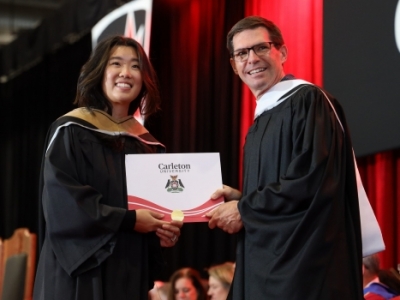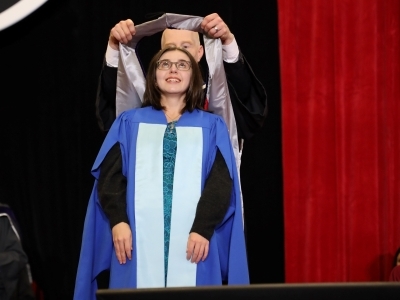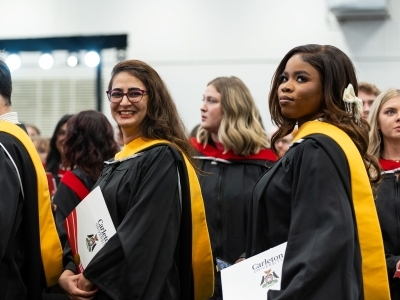Recently, more than 150 delegates from a wide range of universities got together to discuss The Future of the PhD in the Humanities. Paul Keen, the Associate Dean (Student & Postdoc Affairs) for the Graduate Studies attended. As he found out, there is a thirst for change.
“There was definitely a widely shared sense that things can and must change and in very particular ways that will have a real and positive effect for our students.”
–Paul Keen
I attended this conference at McGill both as a member of Graduate Studies and also as an English professor.
Two things immediately became clear: just how widely attended the conference was, and how high the enthusiasm level was. We were there because we felt an urgent need to ask hard questions about PhD programs in the humanities and to try to tackle problems that many people were raising in concrete ways.
There was a strong sense that some things did need to change and that now is the time to do it, but just as importantly, a feeling in the room that we should do this from a position of strength rather than out of a sense of crisis. As one speaker put it, we need to remember just how popular the humanities are. We are a place where people wrestle with the big questions about what it means to be human in a time when the digital turn is radically transforming many of our most basic ways of relating to each other. So there needs to be change, but change that emerges out of a real sense of the value of what we do.
Three areas of focus emerged.
First: Many people asked whether doctoral programs really need all of the coursework and comprehensive exams that are currently required. Might it be better, especially given funding realities, to move more towards a model that is thesis-only? People offered good arguments on both sides (courses provide a valuable chance for students to meet each other before they embark on their dissertation) but everyone agreed that our programs need to take less time to complete and most people felt very strongly that we should work hard to preserve the dissertation in its current form rather than scaling it back.
Second: Given that 85 per cent of our graduates are not going to secure permanent academic positions, we need to do a way better job of preparing our students for a range of other career paths in both the private and public sectors. This involves two different changes. One is training. We all know that our students develop skills which are highly valued outside of the academy (research, critical thinking, communication, etc.) but we do NOT do a very good job of training our students to convey these strengths in ways that potential employers value. Some people suggested building co-op opportunities into the PhD, which would give students a foot in the door once they graduate. On the other side of this issue, we as professors have to work harder to change the culture within universities so that non-academic career paths do not seem like an inferior Plan B. If we do not genuinely change our thinking then we cannot expect it to take root amongst our students.
Third: There was a very energetic discussion about how we might do a better job of conveying the public value of the humanities to audiences outside of the university. Again, this issue was debated on a couple of levels. On the one hand, it is clearly more important than ever that we manage to convey why the kind of work we do matters, and how it resonates with wider concerns beyond the academy. On the other hand, it is important that we find ways to value the kinds of work that many students are already doing along these lines in ways that can build it in to what we recognize as a dissertation, rather than asking them to do it on top of their workload.
One point that everyone agreed on was that it would be much easier for individual departments to reform their own programs if they know that they are part of a larger sea of change.
Not surprisingly, there were more questions and ideas than definite solutions. But there was very definitely a sense that things can and must change, and in very particular ways that will have a real effect. People finished by suggesting that we should meet again in a year’s time in order to see how far we have moved, and to make sure that our momentum doesn’t wane.
If you are interested in reading more about this topic, you can click on the following:
Are there too many PhDs? Turns out, maybe not: A look at where PhDs end up after leaving the Ivory Tower
Mobilizing the humanities for diverse careers
Humanities scholars try new ways of talking about the PhD
Where are Canada’s PhDs employed?
Editor’s Note: For more information about professional development opportunities for Carleton graduate students, please visit our Grad Navigate website.
Your feedback is always welcome. You can send to fgpa_newsletter@carleton.ca or comment below.



